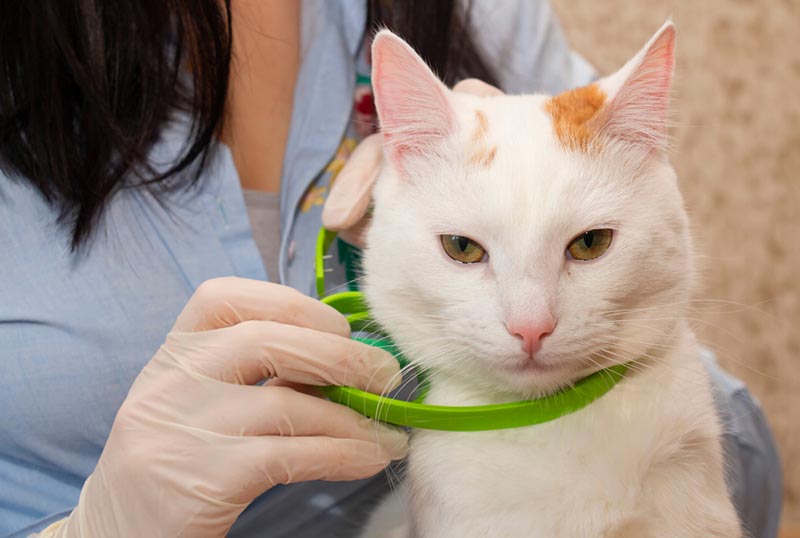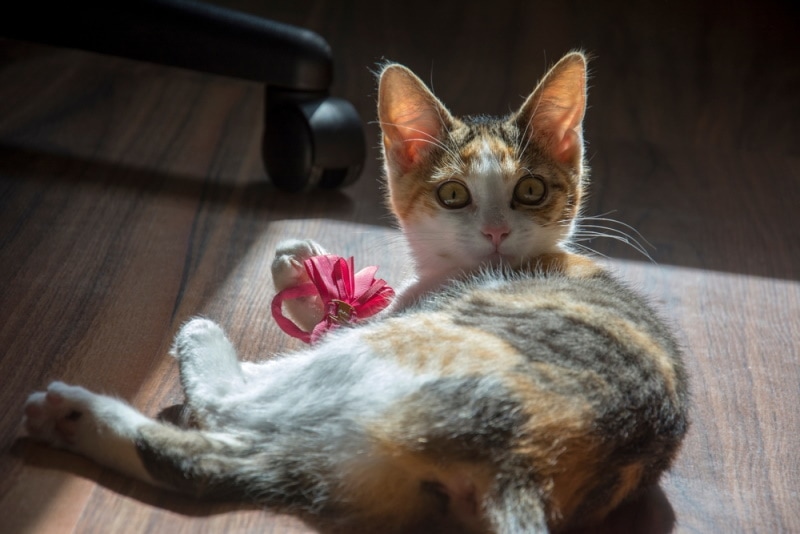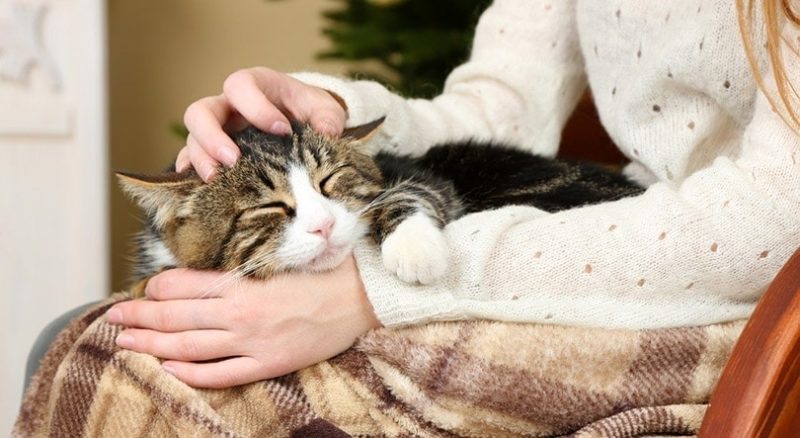Can Cats Eat Vanilla Ice Cream? Vet-Reviewed Facts & FAQ
Updated on

Click to Skip Ahead
Cats tend to be picky eaters, though they might stray from their carnivore diet to try out other things, like whipped cream and yogurt. So, it shouldn’t be a huge surprise if your cat tries to snatch a lick or two of your vanilla ice cream. That creamy texture is hard to resist!
Not all cats will gravitate toward vanilla ice cream, but if yours happens to be attracted to it, you may be wondering if it’s okay to give them any. Is vanilla ice cream healthy for cats? Is it toxic to them? The short answer is that your cat may have a lick or two of it without experiencing any serious side effects. However, vanilla ice cream is not a healthy food for cats and should never be a regular part of their diet, no matter how small. Here is what you should know.
Cats Are Typically Lactose Intolerant
As a dairy product, ice cream has large amounts of lactose, which cats tend to have difficulty digesting. Many cats will develop signs of gastrointestinal distress after consuming products like milk, cheese, and ice cream. Kittens produce a natural enzyme called lactase that helps break down the lactose in their mother’s milk. However, once they are weaned, they stop producing the enzyme and can no longer break down lactose as is needed for proper digestion.
Lactose intolerance is due to how dairy products must be processed in the body. The sugars in milk and ice cream, for example, must be broken down into two different substances (galactose and glucose). The body needs to harbor the lactase enzyme in order to properly do so. Adult cats have little, if any, lactase, so breaking down dairy sugars properly is almost impossible to do. Therefore, the larger dairy sugars make their way to the large intestine, where they need to be broken down by bacteria instead. This process can result in the production of gas and lead to an increase in the amount of water in the bowel movement, creating unpleasant side effects.

Possible Side Effects of Consuming Dairy Products Like Vanilla Ice Cream
If your cat eats dairy products like vanilla ice cream, they may develop signs of gastrointestinal distress that can last up to about 12 hours.
- Excessive gas
- Cramps
- Vomiting
- Diarrhea
Fortunately, dairy is not toxic to cats, so these side effects are not a cause for emergency care and should subside within 12 hours. If they do not, however, it’s a good idea to contact your veterinarian for guidance, advice, and a possible checkup.
Other Ingredients in Vanilla Ice Cream That Aren’t Ideal for Cats
- Milk
- Buttermilk
- Cream
- Sugar
- Artificial flavors
We already know that vanilla ice cream contains lactose that cats may not be able to process. Along with that, the sugar and artificial ingredients may create other health issues. Cats don’t need sugar, and actually can’t even taste it, so all feeding sugar does is pack in extra calories which can turn to fat. Eating sugar can lead to things like weight gain, obesity, and diabetes in cats.
We already hit on the lactose factor, but it’s important to know that dairy products like milk and cream also tend to be high in fat. Consuming too much fat is another way your cat may gain unnecessary weight which can lead to diabetes and joint issues. The bottom line is cats are obligate carnivores, meaning they require animal protein (meat) for the majority of their nutrition, and vanilla ice cream provides little nutritional value. Not only that, vanilla ice cream can cause stomach upset and long-term issues like obesity.
FAQs
Is Vanilla Ice Cream Poisonous to Cats?
It’s not poisonous, but it can cause unnecessary pain and distress. It also causes the body to work harder on the digestive process when it could be focusing more on other bodily functions.

Is Emergency Care Necessary If My Cat Eats Vanilla Ice Cream?
There’s no need for emergency care if your cat eats a tiny amount of ice cream—unless chocolate or xylitol are included in the ice cream’s ingredients. case, you should call your vet right away. Regardless, general care might be warranted to help ease gastrointestinal discomfort if it lasts longer than 12-24 hours.
Can Cats Get Brain Freeze From Eating Ice Cream?
Yes! Cats share the same brain anatomy as humans, which means they can also experience things like brain freeze. Brain freeze develops when the blood vessels in the throat detect extreme cold and quickly expand to warm up and handle that coldness. The result is “pain in the brain,” as the process plays itself out.
Can Cats Eat Any Dairy?
Since cats are typically lactose intolerant, it isn’t a good idea to let your cat eat dairy. However, it isn’t the end of the world if they get their paws on a piece of cheese or lick your finished bowl of vanilla ice cream. Your kitty may not have any side effects from doing so. Even if they do, they shouldn’t be life threatening.
Can Cats Eat Frozen Yogurt?
The same concept applies to frozen yogurt as it does to ice cream of any flavor, including vanilla. It’s not a good idea to intentionally feed frozen yogurt to your cat, but you don’t need to worry about them having a couple of licks occasionally.

A Final Recap
Cats shouldn’t be eating vanilla ice cream, though a few licks here and there isn’t anything to worry about. However, regular consumption and/or eating any more than that in a sitting can cause gastrointestinal distress. It’s best to just keep the ice cream away from your cat whenever possible.
See also:
Featured Image Credit: Counselling, Pixabay













